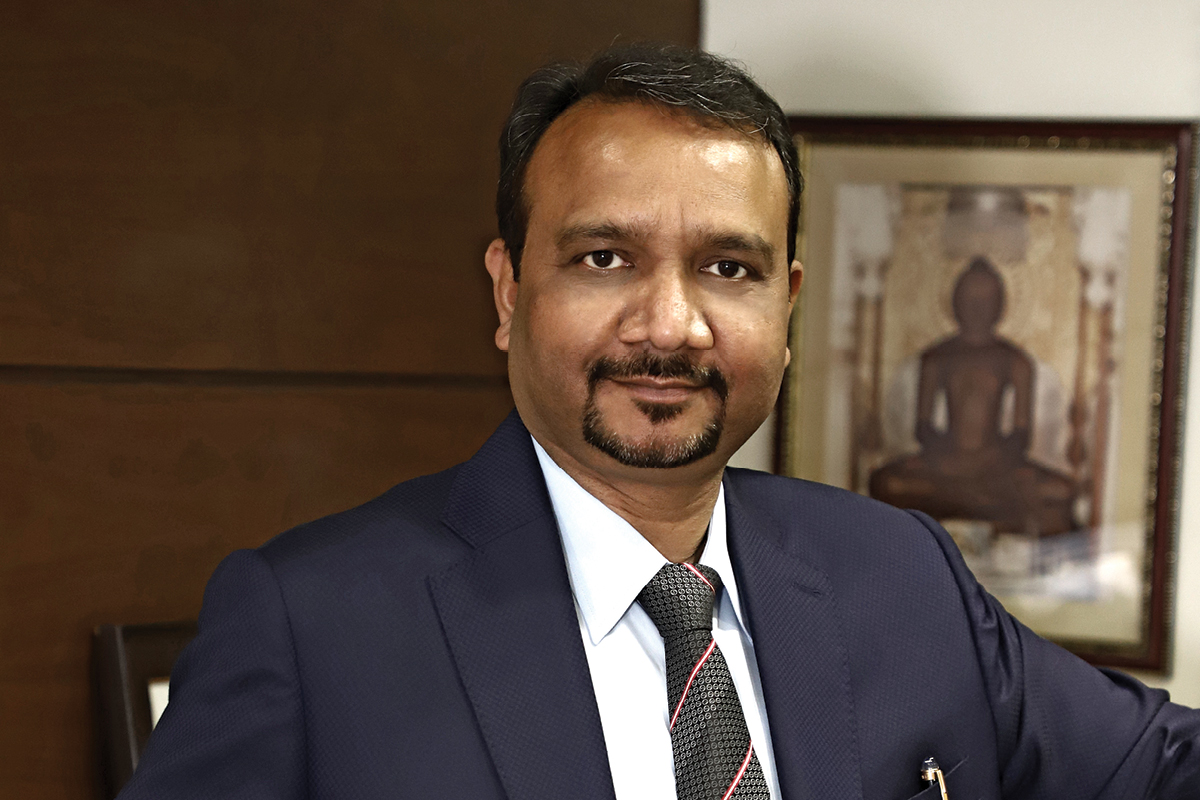Built for the highways: Yogesh Kumar Jain
Under Yogesh Kumar Jain’s directorship, PNC Infratech sticks to what it does best.
The youngest of four brothers, Yogesh Kumar Jain currently serves as Managing Director of PNC Infratech. Specialising in infrastructure construction, operation and management, PNC has an established track record of successfully implementing infrastructure projects across highways, expressways, bridges, airports, industrial area developments and power transmission lines throughout India.
Yogesh’s formal education in civil engineering and his more than 25 years’ experience have prepared him for his current role where he overseas the business strategy, engineering, construction management, contract administration and operation of projects.

When Yogesh joined PNC in 1992, the infrastructure industry in India was not developed to its full potential, and turnover of PNC was around US$200,000. At the time he believed that the business needed to stress its competitive advantage and should explore bigger opportunities for accelerated growth.
Thus, between 1992 and 1998, PNC executed several small- and medium-sized road and airport projects to build up its credentials. Then, in 1999, when the National Highways Authority of India (NHAI) was poised to take up road development in a big way, and realising the enormous potential and promising opportunities, Yogesh thought it was the right time for PNC to make a foray into highway construction at a national level.
The first major accomplishment of his strategy was securing the four-lane project of the Agra-Gwalior section of NH-3 from NHAI. Yogesh’s efficient execution and optimal resource management meant PNC was able to complete it well ahead of time. It even received an early completion bonus from NHAI for the first time in NHAI’s history. Since that achievement, Yogesh has been focused on beating deadlines.
Under Yogesh’s directorship, PNC has targeted government projects at both central and state levels. Between 2001 and 2009, PNC had grown tremendously in terms of its business, employees, equipment bank and geographical presence. With consistent performance in turnover and profitability, it became capable of investing in infrastructure projects.
By 2006, PNC had ventured into BOT (build, operate and transfer) contracts. This means that the private developers can build infrastructure with their own funds before transferring it to the government, incrementally recovering investment including profit through the collection of user fees over a given concession period. Successful projects with both EPC (engineering, procurement and construction) and BOT formats have continued and are still a part of the business today.
As of 31 March 2018, PNC had successfully executed 60 major projects, and it is currently working on 17 EPC projects, with an annual construction turnover of more than US$250 million in FY18.
PNC is also working on seven highway development projects worth over US$1.2 billion under the Hybrid Annuity Model (HAM). Furthermore, the company has a portfolio of six operational projects including BOT-Toll, BOT-Annuity and OMT (operate, maintain and transfer) projects.
With projects in the public sector being profitable and secure, Yogesh sees no need to divert the company’s attention elsewhere. "There are many opportunities in the highway sector," he comments. PNC’s turnover is projected to reach around US$500 million by 2021, signalling that the outlook for growth has never been as good as it is now under Yogesh’s stewardship. Even still, the MD sees ample room for improvement.
He recognises the need to continue to focus on and improve areas such as technology and equipment upgrades, strategic partnerships and employee training. He adds that he is particularly interested in taking on more collaborative projects that are based on PNC’s strengths, synergies and core competencies.
Yogesh acknowledges the challenges that exist for PNC, with every project demanding new approaches and unique strategies for implementation. In his view though, these are all issues that can be solved by focusing on what the business does best, and that’s completing projects on time to maximise revenue and profit. "That should always be the aim. As long as we emphasise the potency of research and development, we will be able to understand how to complete projects ahead of deadline."
In every project that PNC works on, Yogesh aims for excellence in terms of time and quality.
He says that "with PNC’s capability of providing end-to-end solutions, business should constantly be in control, delivering unbeatable results".
"Once we commit to a project, we get the job done perfectly, challenges notwithstanding." When pressed on why PNC might be better than the competition, Yogesh has a simple answer: "Because we believe in working on the right projects, with the right resources, and at the right prices."
"We believe in working on the right projects, with the right resources."
Given its proven track record, healthy financials and its more than US$2 billion worth of projects in hand, PNC is on the path to a spectacular future under Yogesh’s leadership.